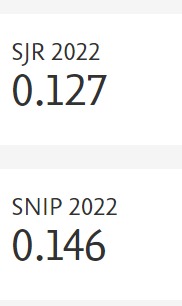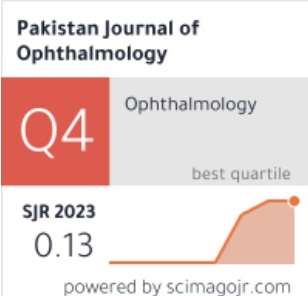Ocular Manifestations Associated with Head Injury
DOI:
https://doi.org/10.36351/pjo.v32i2.123Abstract
Purpose: To evaluate the pattern of ocular manifestations in patients of head injury.
Study Design: Prospective Cross sectional study
Place and Duration of Study: Study was carried out at District Headquarter Hospital, Rawalpindi, from 1ST January 2013 to 30th June 2013.
Material and methods: 152 patients, diagnosed of having head injury along with ocular manifestations were included in this study. These head injured patients with ocular morbidity were analyzed for age, sex, cause of injury and types of ocular and head injuries. To evaluate these parameters, detailed history was taken followed by detailed anterior and posterior segment slit lamp examination, checking of extra ocular movements and optic nerve functions. Diagnostic investigations carried out included computed tomography scanning/ magnetic resonance imaging of brain and orbit, gonioscopy, diplopia charting, and measurement of intraocular pressure.
Results: Among 152 patients, 108 were males and 44 were females. Causes of head injury were traffic accidents 56.5%, fall from height 25.0%, assault 13.8%, and gunshot 4.6%. Maximum head and ocular injuries were in age group of 11-20 years. Most frequent soft tissue injury was periorbital echymosis (85 patients). Most frequent neuro-ophthalmic manifestation was abducent nerve palsy (12 patients). Orbital fracture with ruptured globe was encountered in 2 patients.
Conclusion: Injury to the globe, adenexae and ocular cranial nerve palsies constitute the most common oculovisual complications following head injury.
Keywords: Ocular, visual, complications, head injury.






